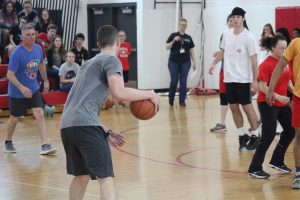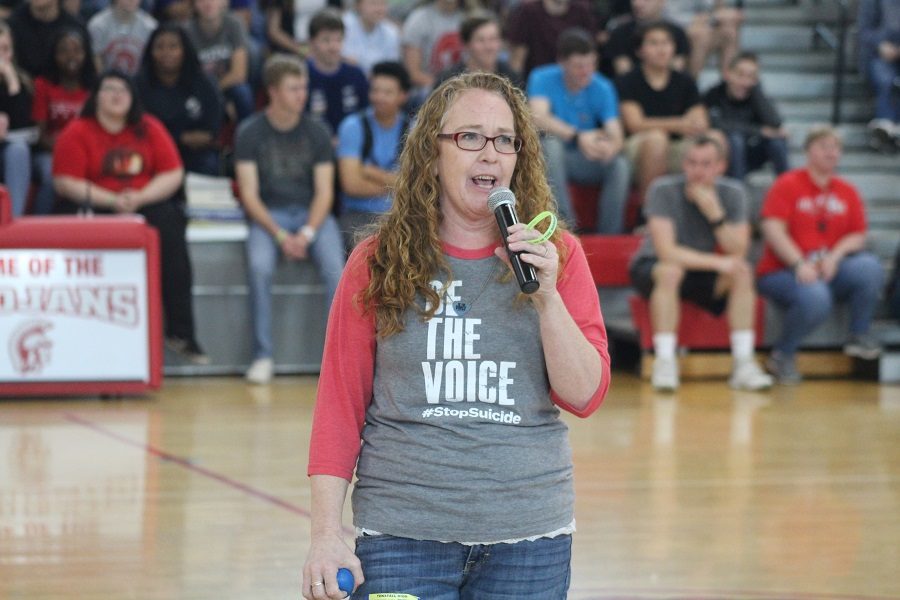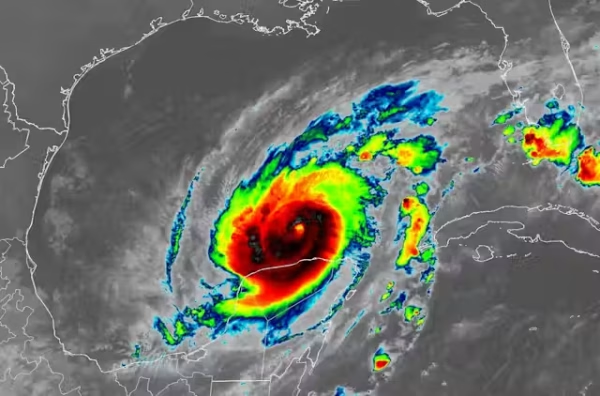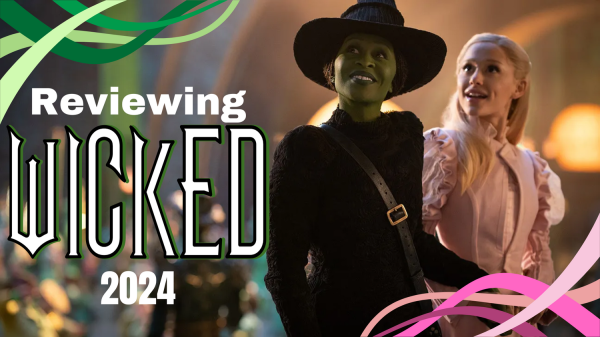Mental Health Awareness Week held
LeAnne Hardy speaks to Trojans during halftime at Friday’s faculty/student basketball game.
The week of March 26-30 was deemed Mental Health Awareness at THS. The week included announcements, posters, and green ribbons to bring awareness and understanding about those struggling with mental health issues. The week concluded with a faculty/student basketball game where the halftime portion featured speakers from Danville-Pittsylvania County Out of the Darkness.
Senior Lia Haskins headed up the project along with seniors Hannah Hale, Ali Hill, Heather McCubbins, and Kelsie Smith.
Haskins first came up with the idea to have a Mental Health Awareness week in December. She had been accepted into the Honors College at East Carolina University, but she had to complete one more essay about an event she could organize in her community. While discussing the prompt with College Adviser Ms. Keri Holt, who was the staff sponsor for this week, they developed the idea of having a Mental Health Awareness week.
“When we we got back to school in January, we planned it and made it happen,” said Haskins.
A lot of effort went into organizing the week, especially the basketball game.
“We have been organizing it since January, but we started ‘hard core’ organizing it last Wednesday,” said Holt.
The faculty/student basketball game was an exciting way to end the week, but also provided an opportunity for students to be more informed about mental health.

“A basketball game is a good way to get students’ attention, period. It’s also good for students’ mental health to take a break from academics. It gets students engaged because Tunstall is competitive,” said Holt.
Senior Jalen Moore was one of the many students who agreed to face off with teachers in the game.
“It was a good game and experience playing against my teachers,” said Moore.
During halftime, LeAnne Hardy, community director for the Danville-Pittsylvania County Out of the Darkness, and Lorrie Eanes-Brooks, of the AFSP Virginia Chapter Board, spoke to Trojans.
Hardy began with addressing the student body in this way: “You have become a statistic since I saw you last. But, out of that pain and suffering, our community has been able to come together.”
She then called up senior Reese McQuaid to participate in a juggling game with balls that represented different stressors of life. At first, he started out juggling balls that represented common things, such as studying for SOL tests, but then more “stressors” continued to be thrown at him. Eventually, McQuaid could not juggle them all, proving Hardy’s point that “it is okay to not be okay.”
“It is okay to not be okay. It is okay to be stressed out and down. What is not okay is to not get help,” said Hardy.
Brooks then spoke on options students have if they want to reach out for help. She gave out the suicide prevention hotline numbers and reminded Trojans that there are “safe talk teachers” that are willing to listen to what is going on in students’ lives.
The group coordinating this week hopes that the idea of Mental Health Awareness will last far beyond this one week in March.
“I hope kids know there’s a lot of students and faculty, people in general, who are dealing with mental health issues. It’s hard and it is okay to seek help. There are many options for help,” said McCubbins.
“I just want to let people know it is okay to talk about mental health and seek help. It shouldn’t be a taboo subject,” said Holt.
Haskins agreed with McCubbins and Holt and said, “I want there to be less stigmas surrounding mental health. I want us to be able to talk about it, and for people struggling to know that they’re not in a different part of society. There are people that want to help.”
Your donation will support the student journalists of Tunstall High School. Your contribution will allow us to purchase equipment and cover our annual website hosting costs.

Anna Catherine is a senior and this is her fourth year on the Trojan Messenger staff. It may appear, at times, because she is often editing articles,...













